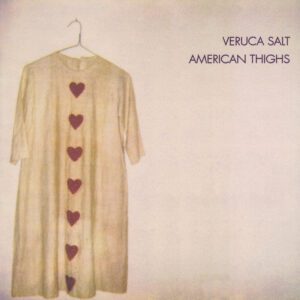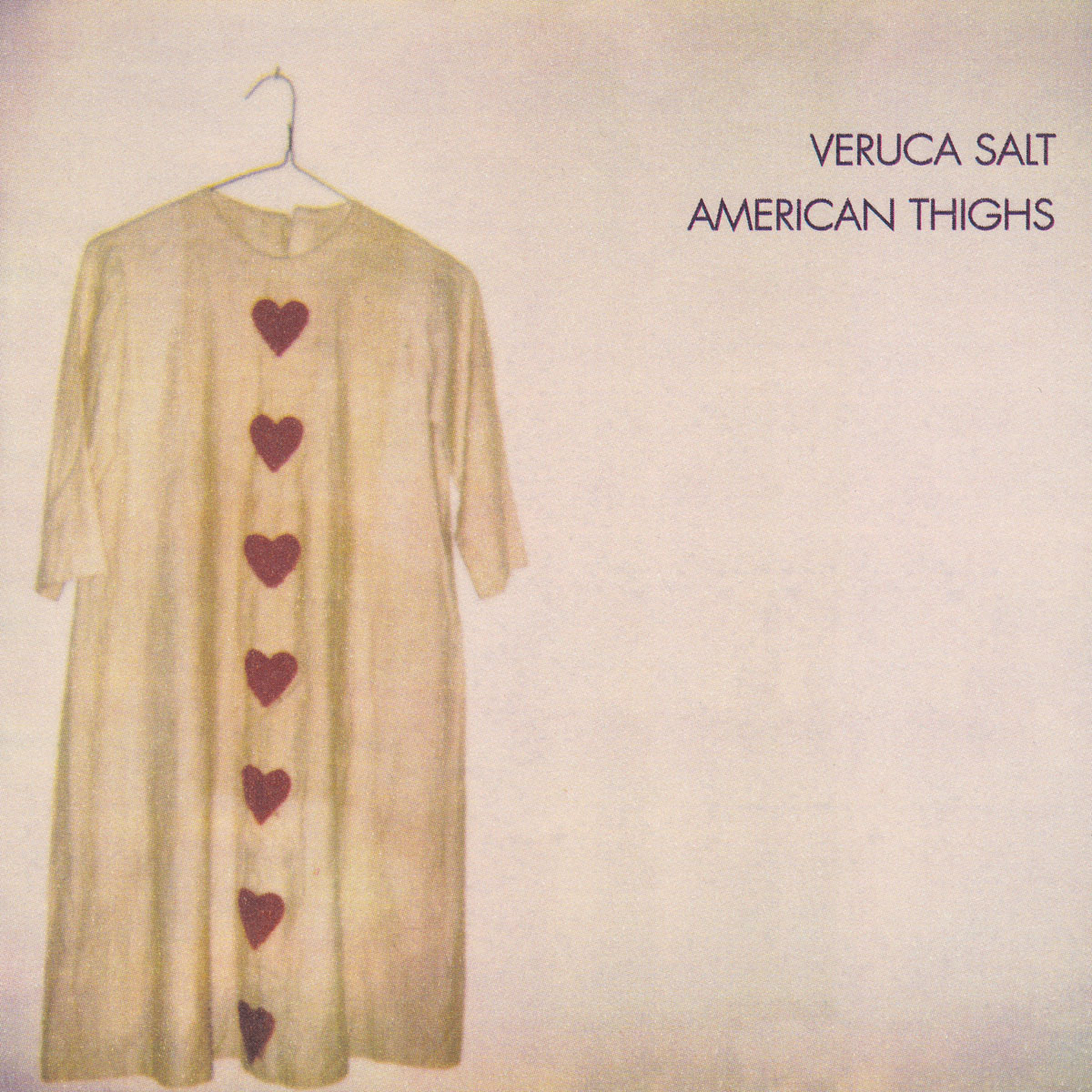
Label: Minty Fresh
Producer: Brad Wood
Release Year: 1994
Listen: Spotify / Apple Music
Rock and roll made by cute chicks will never get old. Sexist! But so true. Just ask any Gen X boy about Susanna Hoffs. The gateway hot chick with a guitar. And then a whole generation of dudes with guitars. Metal guys. Indie guys. Grunge guys. And, sure, there was Kim Deal. But she was something different. And then there was my pre-Veruca Salt crush, Juliana Hatfield. But she was a solo artist, and just a bit more twee. She didn’t “rock” the way this duo did. Weirdly, all of these alt-women were born in 1967. There must have been something in the water. But, that aside, Veruca Salt came out of the gate with chugging guitars and an etherial harmonizing that didn’t go all ugly riotttttt girlllll on us. But rather did something that just tickled the undercarriage of rock ‘n’ roll.
You know “Seether.” We all know “Seether.” That shit hit so hard back in the day. And then you saw who these people were and it didn’t fucking matter that the lyrics made no sense. And the three chords were three chords. And the album was tantalizingly entitled “American Thighs.” Someone somewhere knew what they were doing here. Because as a 21-year-old man in the post-grunge era, I was sold. It felt so of a moment, so much like a burgeoning something in the air. Tenants of grunge, but with a whole lot of power pop mixed in. Contemporaries of another new band in a similar-ish vein, that dog., but with way larger aspirations and way less nerdiness. A proper rock band with rock band flair. Fuck yeah!
The thing is. 1994 was kind of a pivotal year in the history of rock music. In the attitude of rock music. You had the old world — though the old world was only a couple years old at this point — of the clearly Cobain-inspired ugliness/awesomeness of Live Through This and the lingering metal-y, grunge hangover of Superunknown and Jar of Flies. But then you had some bands being like, “What if we just completely fuck with genres and make something different?” Enter Mellow Gold and Ruby Vroom and, to some extent, Ill Communication. But… then you had two bands who were like, “Let’s not get too far away from what rock music is, but let’s take what has been a swirling mass of darkness and add some pop and snark to it.” And this is where we get two entrants to the 1994 music scene that will inexorably change the sound forever, Dookie and Weezer’s Blue Album. But somehow in all this American Thighs manages to straddle both the old and new sound. One foot in the crunch and heaviness of the grunge era and also the harmonies and light of the next power-pop era of Weezer. This is all while Matthew Sweet yells from the background, “I’ve been here all alooooong!” Sorry, Matt, this isn’t your thing. Be lovelorn somewhere else.
The point is, Veruca Salt didn’t carve a new path, but they picked up what was the sound and tweaked it in a way that was more accessible. More marketable and shiny. Rock music need not all be greasy, tattooed and heroine addicted darkness. Nor does it need to take the another ’94 album’s approach, that of Liz Phari’s Whip-Smart, where you write one obvious radio-friendly rock ‘n’ roll banger in “Supernova” and then just kind of do your meandering Liz Phair thing for the rest of the record. (A funny comparison, now that I’m thinking about it, considering Brad Wood produced both that album and this one.) Not that there aren’t some inconsistencies in this album, but there are some underpinnings that remain mostly throughout. Like a lot of sequencing in this era, it is much stronger in the first half, but I probably only have the attention span to listen to six tracks in a row anyway. As a bridge to the new century of a dying genre of music, American Thighs stands out as a good example of what could have been.


